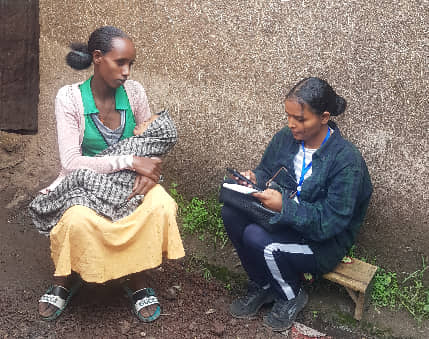Baseline survey of the USAID Healthy Behaviors Activity
Overview
The USAID Healthy Behaviors Activity, implemented by FHI 360, promotes sustainable health and nutrition practices in Ethiopia through evidence-based social and behavior change strategies. It aims to improve household behaviors, increase health service demand, and support gender-equitable health actions, reducing issues like family planning gaps, malaria, maternal and child mortality, malnutrition, WASH-related illnesses, and emerging diseases like COVID-19. The project runs from July 1, 2022, to June 30, 2027. The baseline survey establishes benchmarks to track the Activity's progress against its intermediate results (IRs) and Key Performance Indicators (KPIs), helping set annual targets and gather data on behaviors and their determinants. It will also inform the design of the SBC strategy and contribute to the external evaluation of outcomes.
Outcome
Women in the intervention groups were more likely to discuss family planning with their partners after having a live birth in the past two years. A greater proportion of mothers with children under two in the intervention groups reported receiving information from healthcare providers about family planning methods, side effects, and what to do if side effects occur. Additionally, more mothers in the intervention groups created a birth plan during their most recent pregnancy. However, control groups outperformed intervention areas on some indicators, such as more mothers attending regular ANC check-ups and delivering in health facilities. On the other hand, intervention areas showed better outcomes in seeking timely treatment for child fever and postnatal care visits.
Both intervention and control groups had similar results in two areas: early ANC attendance and knowledge of how to access health services. Benishangul Gumuz and Gambella regions had the lowest percentages for early ANC attendance, having at least four ANC visits, and giving birth in health facilities.
In both regions, most women made MCM-related decisions independently or with their partners. Among those who experienced fever in the past two weeks, 76% sought treatment, though all self-medicated without consulting a healthcare provider.




